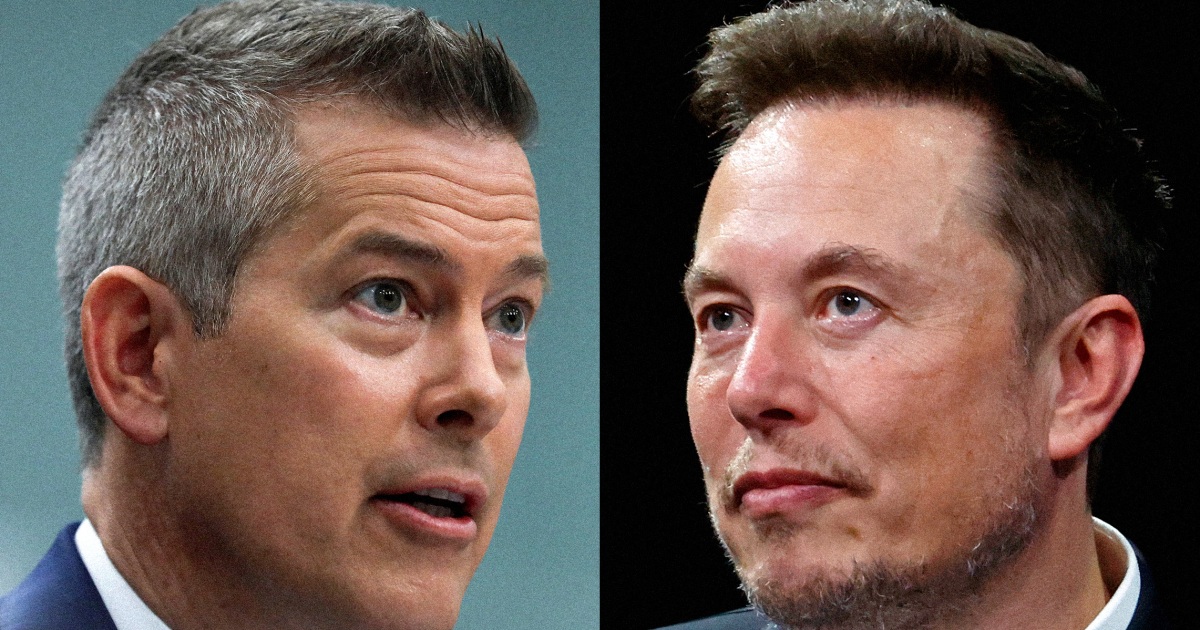Elon Musk, the billionaire founder of SpaceX, unleashed a barrage of sharp criticism on social media Tuesday against NASA's acting administrator, Sean Duffy, following the agency's decision to seek alternative moon landers from SpaceX competitors. The outburst came just a day after Duffy announced that NASA would open up bidding for the Artemis III mission, aiming to ensure the U.S. returns astronauts to the moon before China does, potentially by 2027.
Musk's posts on X, the platform he owns, were personal and pointed, labeling Duffy with derogatory nicknames and questioning his intelligence. "Sean Dummy is trying to kill NASA!" Musk wrote in one post. In another, he added, "The person responsible for America’s space program can’t have a 2 digit IQ." He even launched a poll asking his followers, "Should someone whose biggest claim to fame is climbing trees be running America’s space program?" with options like "Yezz, chimps skillz rūl!" and "Noo, he need moar brainz!" By Tuesday afternoon, the poll had garnered nearly 110,000 votes.
The controversy stems from NASA's evolving strategy for its Artemis program, which seeks to land astronauts on the lunar surface for the first time since 1972. In 2021, SpaceX secured a $2.9 billion contract to develop its Starship rocket system for the Artemis III mission, scheduled for 2027. However, delays in Starship's development, including a series of explosive test failures earlier this year, have raised concerns about meeting that timeline.
Duffy, who also serves as transportation secretary, highlighted these issues in interviews on Fox News and CNBC on Monday. He emphasized the need to outpace China, which plans to land its own astronauts on the moon by 2030 and has already achieved milestones like sending two robotic rovers to the lunar surface and testing a new crewed rocket. "We’re not going to wait for one company," Duffy said on CNBC’s "Squawk Box." "We’re going to push this forward and win the second space race against the Chinese."
He specifically mentioned Blue Origin, founded by Amazon's Jeff Bezos, as a potential competitor that could provide alternative landing technology. Duffy also expressed eagerness, alongside President Donald Trump, to achieve a moon landing within Trump's second term. This shift in approach appears to have directly provoked Musk, who responded by defending SpaceX's progress and dismissing rivals' capabilities.
"SpaceX is moving like lightning compared to the rest of the space industry," Musk posted on Monday. "Moreover, Starship will end up doing the whole Moon mission. Mark my words." SpaceX has indeed established a strong track record, regularly ferrying astronauts and cargo to the International Space Station for NASA.
In response to Musk's initial comments, Duffy posted on X: "Love the passion. The race to the Moon is ON. Great companies shouldn’t be afraid of a challenge. When our innovators compete with each other, America wins!"
But Musk escalated the feud on Tuesday, making it more personal by attacking Duffy's qualifications. Duffy, appointed as NASA's interim administrator in July by President Trump, has been at the center of speculation about the agency's permanent leadership. According to a Wall Street Journal report on Monday, Duffy is reportedly vying to retain the role, even while handling his transportation duties, though NASA officials deny he has explicitly sought to keep the job.
The Journal also noted competition from billionaire Jared Isaacman, who was previously nominated for the position but withdrawn by Trump in May after a "thorough review of prior associations." Trump did not elaborate, but some Republicans cited Isaacman's past donations to Democrats as a concern. Isaacman, who has flown on two private SpaceX missions, had Musk's endorsement.
Bethany Stevens, NASA's press secretary, told NBC News that Trump asked Duffy to vet potential candidates. "Sean is grateful that the President gave him the chance to lead NASA," Stevens said in a statement. "At the President’s direction, Sean has focused the agency on one clear goal — making sure America gets back to the Moon before China. Sean said that NASA might benefit from being part of the Cabinet, maybe even within the Department of Transportation, but he’s never said he wants to keep the job himself." The White House did not respond to requests for comment.
This public spat unfolds against a backdrop of intensifying U.S.-China rivalry in space. China's advancements, including its robotic missions and rocket tests, have heightened political pressure in Washington. Duffy's push to diversify moon lander options is framed as a way to mitigate risks from SpaceX's delays and ensure the U.S. maintains its lead.
Musk's history with the Trump administration adds another layer. In May, around the time of Isaacman's nomination withdrawal, Musk publicly clashed with Trump over a spending bill, calling it a "massive, outrageous, pork-filled Congressional spending bill" and a "disgusting abomination." Musk subsequently left his role as a special government employee at the White House amid the tension.
Despite the barbs, experts note that competition could benefit NASA's goals. SpaceX remains a frontrunner, but opening the contract could spur innovation from companies like Blue Origin, which has been developing its own lunar lander concepts. The Artemis program, named after the Greek goddess of the moon, aims not only for a 2027 landing but also for sustainable lunar exploration, potentially leading to Mars missions.
As the dust settles from Musk's tirade, the focus shifts to NASA's next steps. Officials have not detailed the timeline for soliciting new proposals, but Duffy's comments suggest urgency. With the 2027 deadline looming and China's 2030 target in sight, the agency must balance speed, safety, and competition.
The episode underscores the high stakes in modern space exploration, where private companies like SpaceX play pivotal roles alongside government agencies. Whether Musk's predictions about Starship hold true or rivals step up, the race to the moon is poised to accelerate, with implications for U.S. technological leadership and international prestige.
